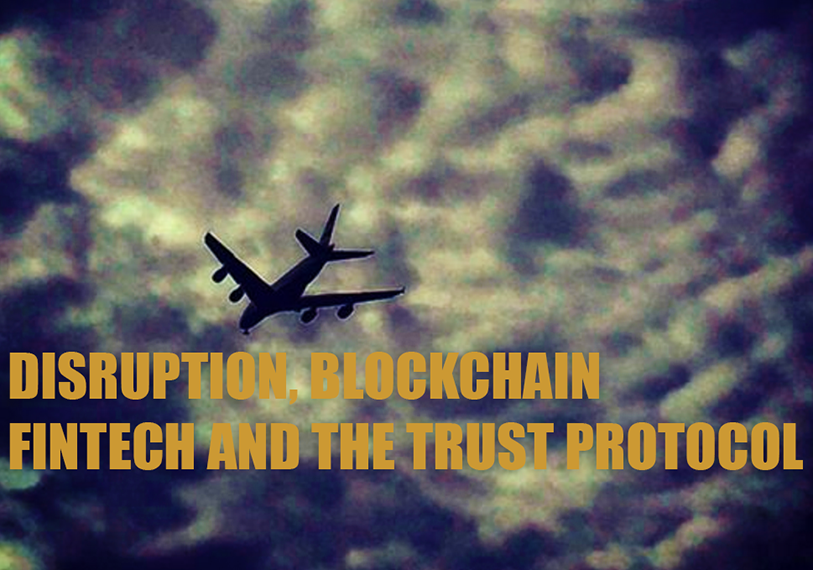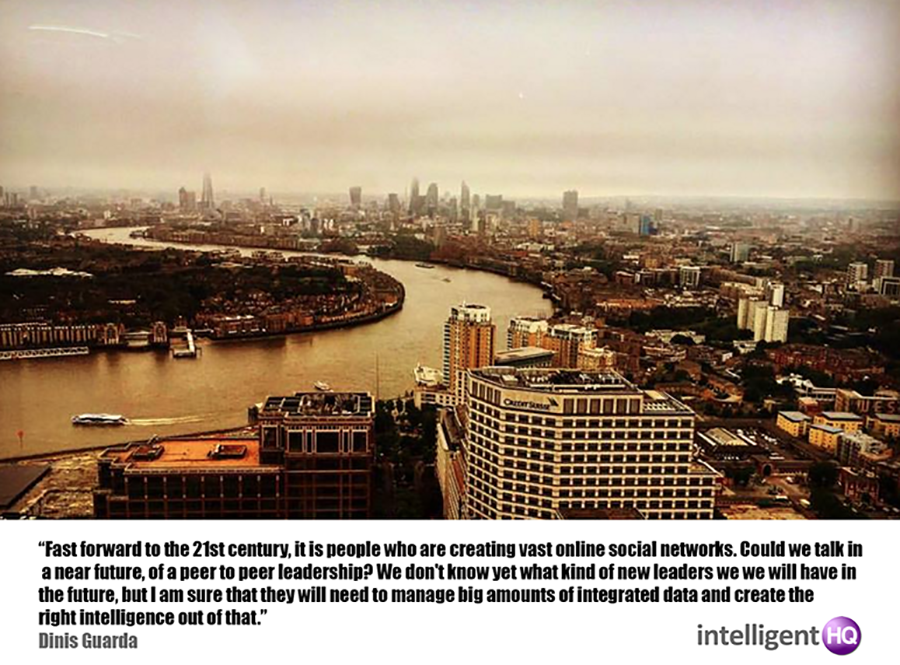
Historical paradox crossroad for humanity
We are in an historical paradox crossroad for humanity that is quite frightening for the world’s finance and economics. The concept of money is pushed further through the advent of social media, the idea of co-creation, the social graph and new approaches to economics such as the use of gamification, blockchain, digital identity and digitilisation of money, health and DNA. These novel strategies are taking over and creating a kind of advanced science fiction twilight zone.
The progression of mankind has always been paced by the rise of new ideas associated with powerful disruptive technologies working together with human systems. Both influence each other. The XXth century saw an acceleration of such technologies, becoming, thus, a fast disrupted century. We predict that over the 21st century the rhythm of change is going be even bigger.
The inception / evolution of the internet has provided humanity with an entire new economy that is now digital by default. That new economy will lead to an AI ecosystem and a predictive set of an algorithm based real-time big data landscape. The IoT / IoE (Internet of things / Internet of Everything) are also contributing to modelling a system of operations that is being adopted by all businesses, organisations and financial corporation around the world. The business leaders that fail to embrace this new paradigm, will quickly disappear.
The present state of technology evolution
The present state of technological evolution is driven by the Internet of Things (IoT)/ Internet of Everything (IoE). This technology is pushing mankind to its biggest shift and state of evolution. Every single machine is starting to have data attached to them and its sensors will enable humanity to digitalise the entire world. This new state of affairs will disrupt established conventions and concepts such as privacy, security and health.
The Internet of Everything (IoE), which is being developed by an increasing long tail of AI – algorithm based optimised patterns, can be characterised by a whole network of physical objects or “things”, embedded with electronics, software, sensors, and network connectivity, in deep connection with humans. This network of sensors will enable these objects to collect and exchange data and will pose new questions and consideration about the way we behave as humans.
The foundations of our present economy are shifting, particularly our ethics, privacy and the way we are evolving as humans. Our leaders are changing as well. During the nineteenth century, the bosses of political machines set out the rules of the economy, in the twentieth, broadcasting and newspapers media barons took over the control. Fast forward to the 21st century, it is people who are creating vast online social networks. Could we talk in a near future, of a peer to peer leadership? We don’t know yet what kind of new leaders we will have in the future, but I am sure that they will be able to manage big amounts of integrated data and create the right intelligence out of that.
If our future home page—the screen you go to first on your phone, laptop or TV—is a bouquet of your favourite streams from different sources, this is a story only possible recently. News streams are blended with shopping streams, blogs, your friends’ streams, each running at its own speed, and into our bodies.
Blockchain The distributed Ledger Catalyst.
In distributed ledger technology, we may be witnessing one of those potential explosions of creative potential that catalyses exceptional levels of innovation. The technology could prove to have the capacity to deliver a new kind of trust to a wide range of services. As we have seen open data revolutionises the citizen’s relationship with the state. Similarly, maybe the visibility brought by blockchain technologies will reform our financial markets, supply chains, consumer and business-to-business services, and publicly-held registers. We know there will be challenges as Distributed Ledgers mature and disrupt how we think about and store data. The UK is in a unique position to explore those challenges and help maximise the benefits
Presently, we have the world-class digital capability, innovative financial services, a strong research community and growing private sector expertise. It is vital that our key assets – including the Alan Turing Institute, Open Data Institute and the Digital Catapult – work together with the private sector and with international partners to unlock the full potential of this technology.
All these revolutionary technological innovations happen in a profusion of media where the keywords are in the eternal crisis, problems and the global local conflicts mixed with some new vocabulary such as technology, startups, software, venture capital money, crowdfunding, the blockchain, IoT and so forth.
Disruption, Blockchain, Fintech And The Trust Protocol Part 2
The post Disruption, Blockchain, Fintech And The Trust Protocol Part 1 appeared first on Intelligent Head Quarters.


